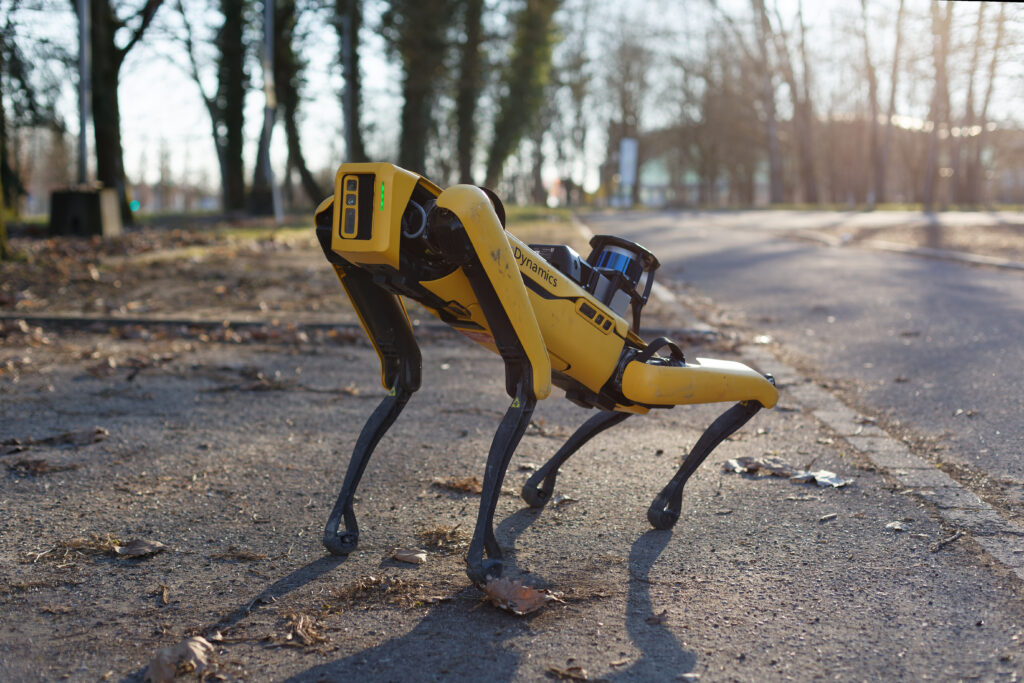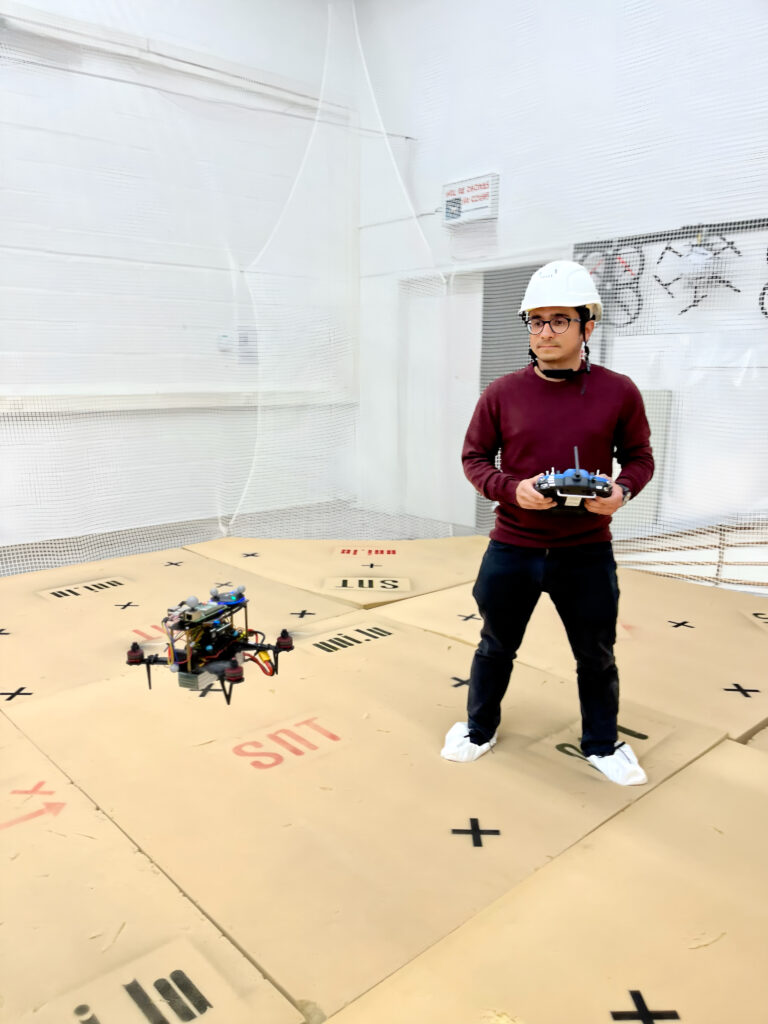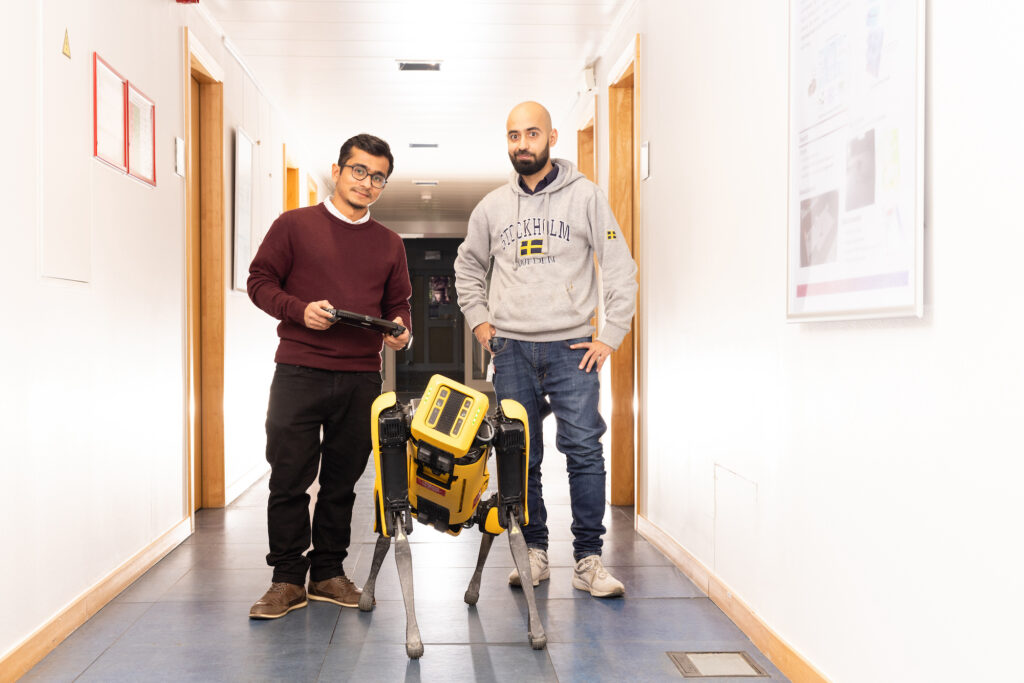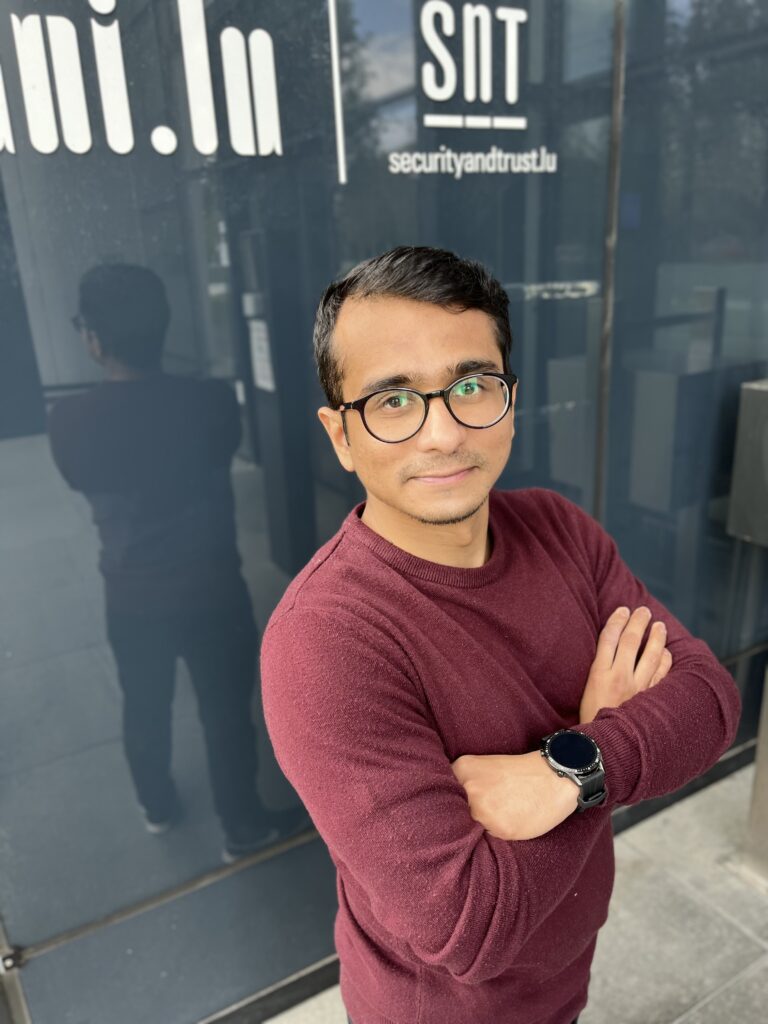In conversation with our young researchers: Hriday Bavle
15 September 2023

Situational awareness for mobile robots
Situational awareness is crucial for mobile robots operating in dynamic environments. It refers to the ability of a robot to perceive and interpret its surroundings, understand its own position in space, and recognise potential obstacles or hazards.
How can robots operate more efficiently and safely in dynamic environments?
Hriday Bavle is a research associate within the the Automation and Robotics Research group of the Interdisciplinary Centre for Security, Reliability and Trust at the University of Luxembourg. His research focuses on Multi-Modal Situation Awareness for mobile robots.
Providing mobile robots with superior intelligence
Multi-Modal Situation Awareness (MMSA) for mobile robots combines data from multiple sensor modalities. By integrating information from different sources, the robot can build a more accurate understanding of its surroundings, allowing it to make better decisions and avoid potential hazards.
One of the key challenges in developing MMSA is dealing with the large amount of data that is generated by multiple sensors. Bavle and his research group have been working on developing algorithms that can efficiently process this data in real-time, while still maintaining accuracy and reliability. This involves using advanced machine learning techniques to analyse the data and identify patterns and anomalies that may be missed by individual sensors.
The researcher’s work on MMSA has many potential applications, including in the construction industry. By improving situational awareness, these robots can operate more efficiently and safely in dynamic environments.

Our research aims to provide mobile robots with superior intelligence to better understand their environment. This will enable us to have reliable robotic systems while efficiently performing repetitive and dangerous tasks.
Hriday Bavle
Paws for success: joining forces with industrial partners
Robot dogs have emerged as a promising technology in the construction industry. Boston Dynamics, a company known for its innovative robotics technology, has developed a robot dog that is making waves in the construction industry. Named Spot, the four-legged robot can traverse rough terrain and climb stairs with ease. It is equipped with a variety of sensors that allow it to detect and avoid obstacles, making it ideal for navigating complex environments like construction sites. The robot dog can also carry a payload of up to 14kg, which can be used to transport tools and equipment around the site.
In 2020, the Luxembourg based construction company, Stugalux, became the first in Europe to purchase two robot dogs and began working with SnT to refine its implementation into Stugalux’s many construction sites.
Hriday Bavle and his research group provide the robot with the ability to navigate autonomously in the construction site without prior site detection solely based on digital models. The three-year project is expected to add a novel advanced situational awareness skill to the robot, so it is capable of understanding the digital building plans of Stugalux, and localise in the construction site – even in the presence of unknown objects, exclusively relying on the measurements provided by the onboard sensors. Thanks to this essential skill, the partners will be able to develop a solution where the robot can autonomously navigate in a previously ‘unseen’ construction site for data collection.

One of the key advantages of using robot dogs like Spot is that they can access areas that are difficult or dangerous for humans to reach. This includes areas with limited visibility or those with potential hazards, such as unstable structures or hazardous materials. By using robot dogs to inspect these areas, construction companies can reduce the risk of accidents and injuries on site
Hriday Bavle
The collaboration between Stugalux and SnT is just one example of how robot dogs are being used to improve safety and efficiency in the construction industry. These innovative machines have the potential to transform the way we build and maintain our infrastructure, making construction sites safer and more efficient than ever before
Research Luxembourg: fuelling innovation
Originally from India, Hriday earned a bachelor’s degree in aerospace engineering and a master’s degree in avionics from Amity University, India. Subsequently, he moved to Spain to complete a PhD, conducting research on improving the perception of autonomous mobile. After his PhD, he worked at a robotics company in Denmark, where he worked on autonomous ground mobile robot solutions. Since 2021 he has been working as a postdoctoral research associate at the University of Luxembourg.
According to Hriday, Luxembourg is a very small country, but it strongly promotes research to maintain a strong economy and create global impact. Due to this reason, there is a skilled workforce from all around the globe, well-allocated resources for doing research, an abundance of research materials, and facilities. The researchers are also one of the highest paid in Europe. This gives a lot of financial stability to work as a researcher while creating a global reputation.

Given the fact that Luxembourg strongly promotes research, a lot of financial support is provided for building state-of-the-art laboratories to conduct world-class research. We can thus perform our research with newer infrastructures equipped with the latest generation of mobile robots, latest and powerful computing and latest generation of sensors.
Hriday Bavle
An international country
Luxembourg is an international, multicultural country that boasts a rich history and diverse population. The country’s population is made up of people from over 170 different nationalities. This multicultural environment has led to a unique blend of cultures, traditions, and languages in Luxembourg. The country is also home to a thriving international research community.
Luxembourg is a small, calm and beautiful country with a lot of people from different countries, which makes it easy to integrate within society. I like the multi-cultural aspect of the country, people from different countries all around the world who live in harmony.
Hriday Bavle










